Vowel Recognition Normal Alphabet Worksheets for Ages 6-8
12 filtered results
-
From - To
Discover our engaging Vowel Recognition Normal Alphabet Worksheets designed specifically for children ages 6-8. These interactive resources help young learners master vowel sounds and their essential role in forming words. With a variety of fun activities, including fill-in-the-blank, matching exercises, and colorful illustrations, children develop their literacy skills while enjoying the learning process. Each worksheet is crafted to nurture phonemic awareness, making learning vowels an exciting adventure. Ideal for homeschooling, classroom use, or supplemental practice, our worksheets are a fantastic way to support early childhood education. Start enhancing your child's reading skills today with our enjoyable, educational materials!
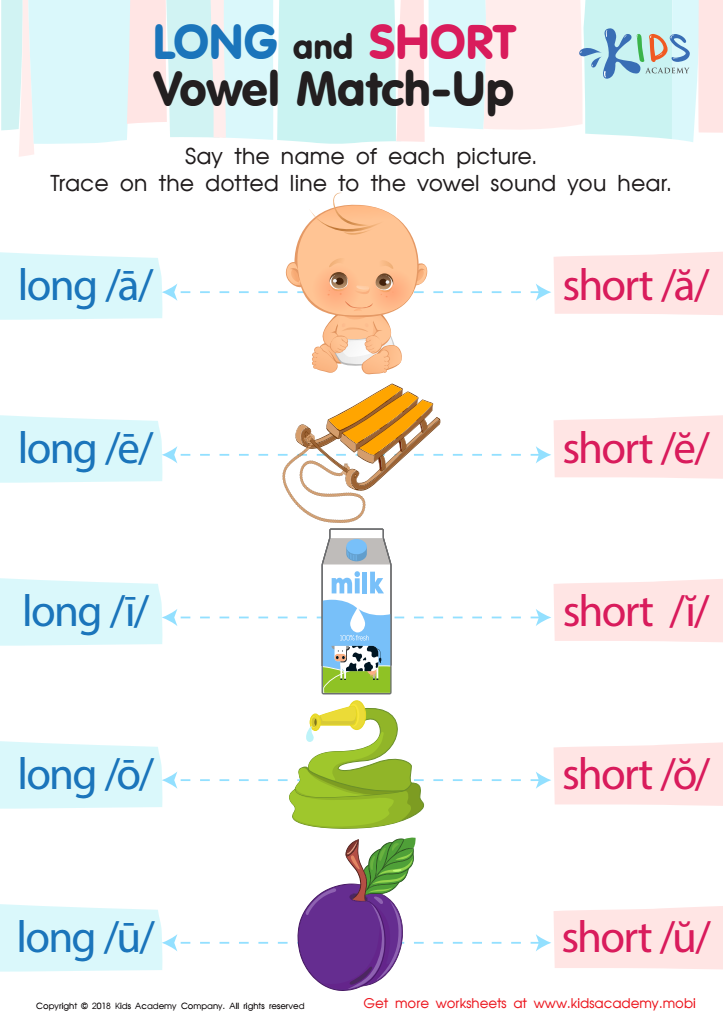

Long and Short Vowel Match up Reading Worksheet


Let's Check Long Vowels: Assessment Worksheet
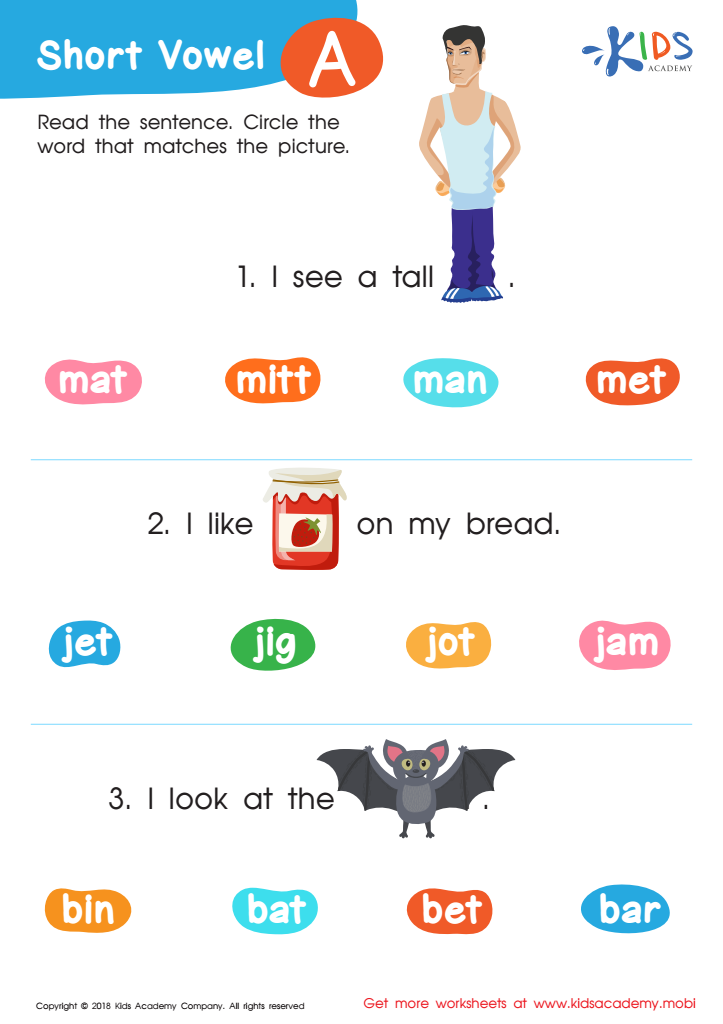

Short Vowel /a/ Worksheet


Short Vowels /e/, /i/, and /u/ Worksheet
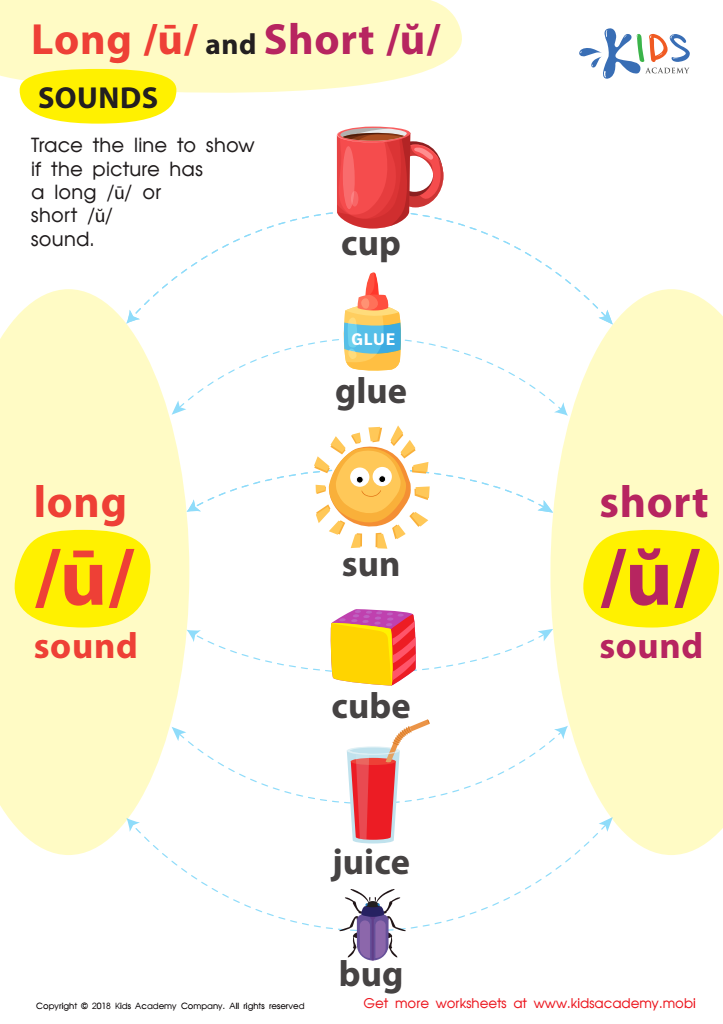

Reading: Long U and Short U Sounds Worksheet


Long Vowel Maze /o/ and /i/ Worksheet


Short Vowel Eggs Worksheet
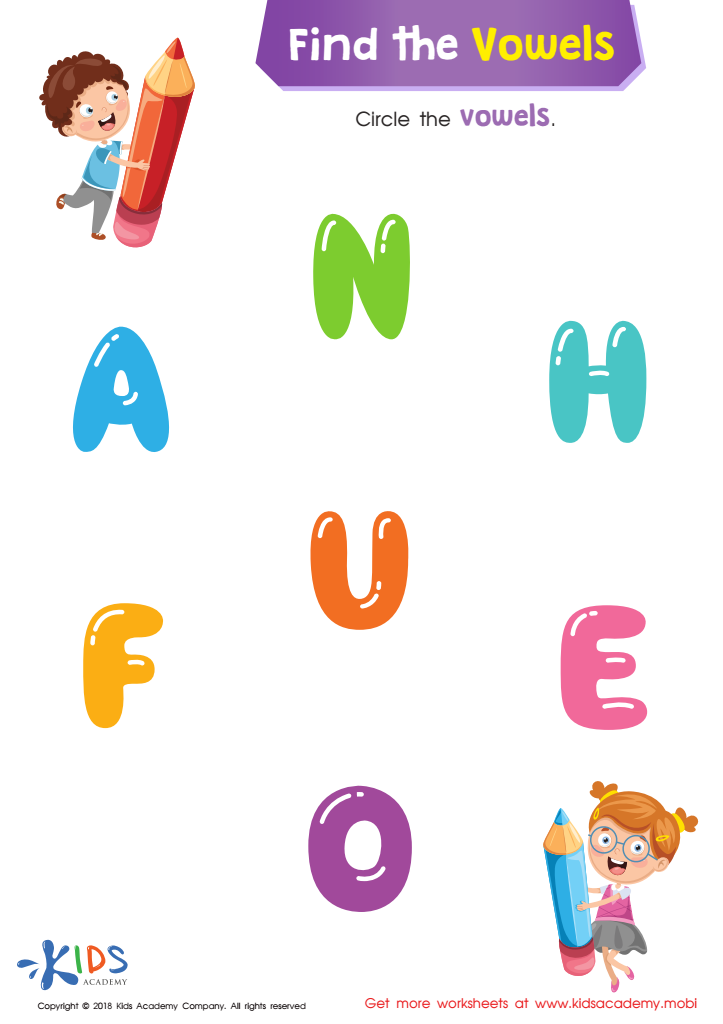

Find the Vowels Reading Worksheet
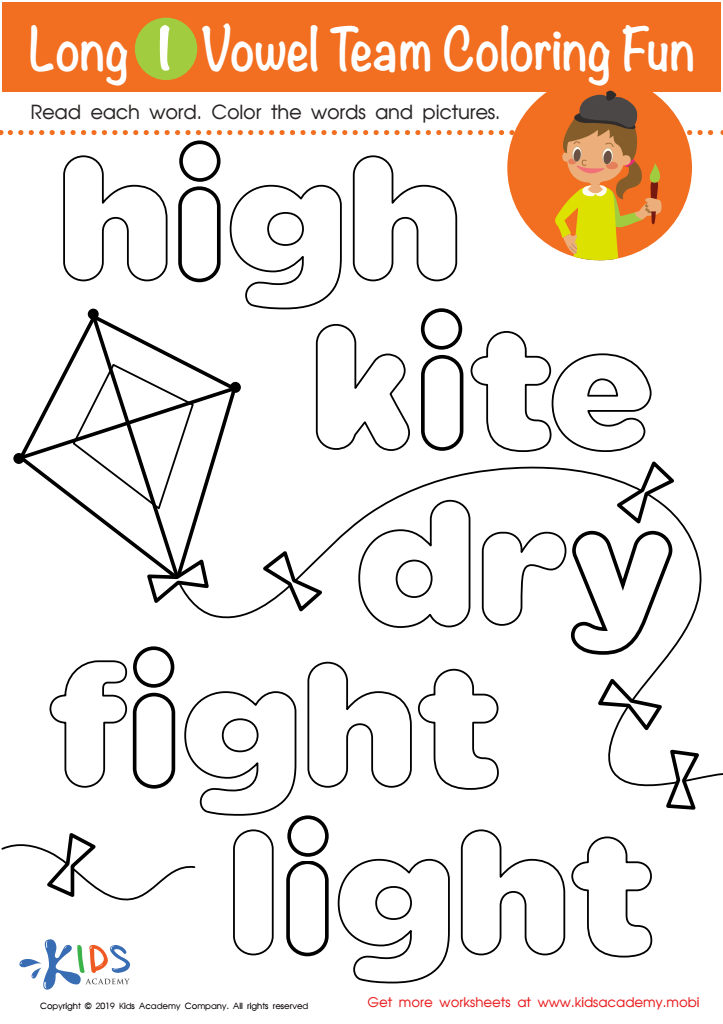

Long I Vowel Team Coloring Worksheet
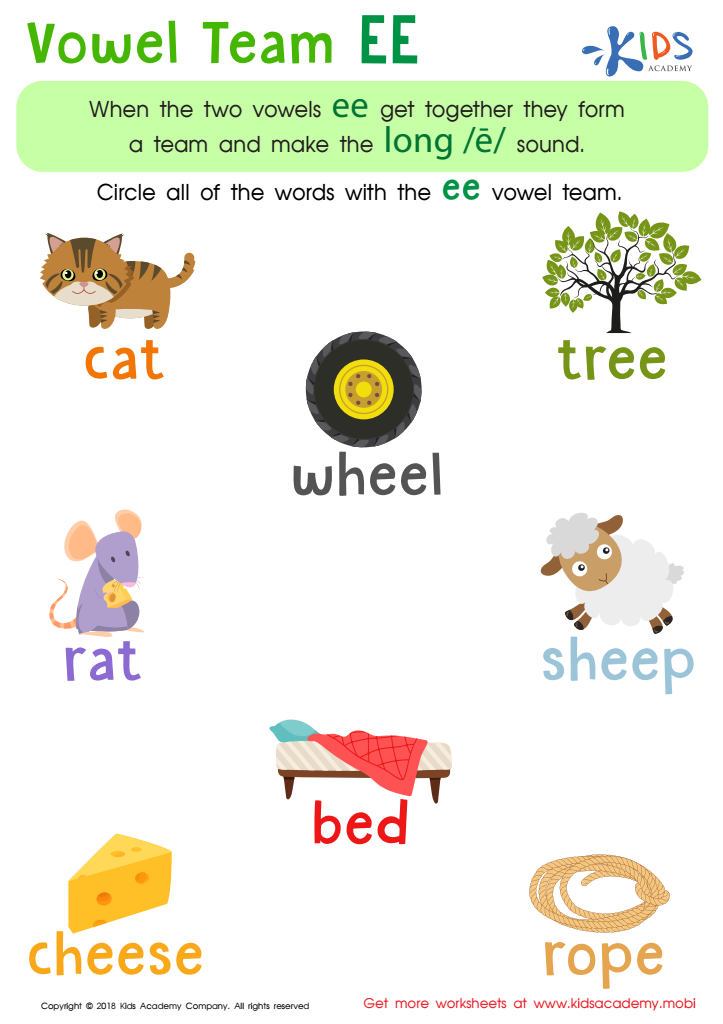

Reading: Vowel Team EE Worksheet
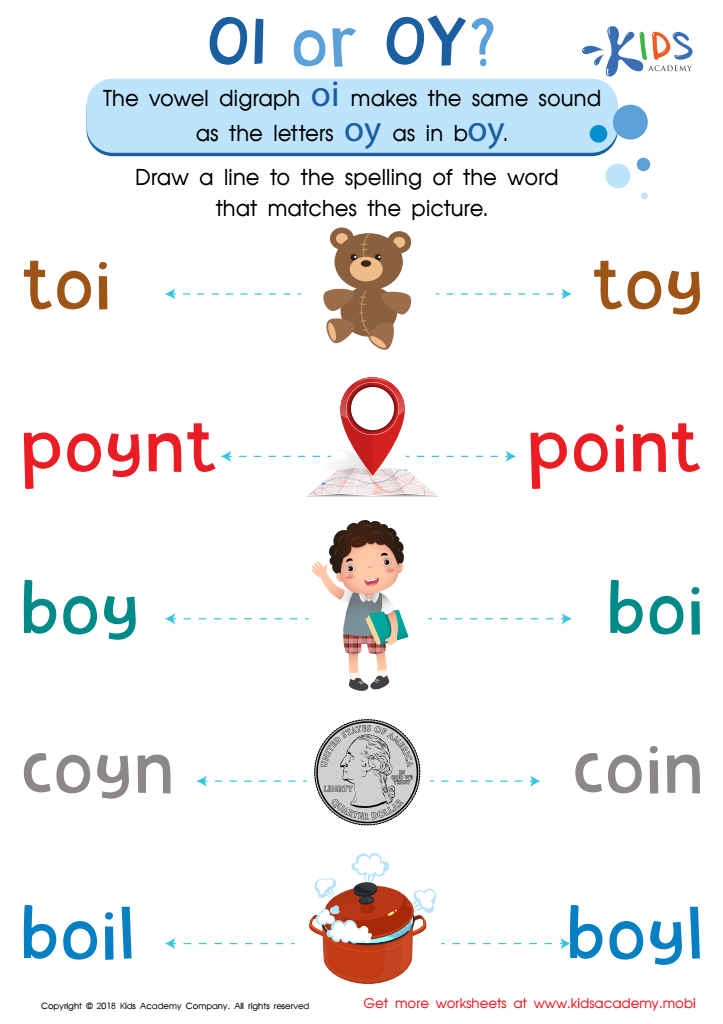

Reading: OI and OY Worksheet


Long and Short Vowel Sentences: Assessment Worksheet
Vowel recognition is a fundamental aspect of early literacy that significantly influences a child’s reading and writing abilities between the ages of 6 to 8. During this critical stage, children are transitioning from learning basic phonics to developing fluency and comprehension skills. Vowel sounds are particularly important; they form the backbone of word structure, impacting how children decode unfamiliar words.
Parents and teachers should prioritize vowel recognition because it lays the groundwork for successful literacy development. By mastering vowels, children enhance their reading capabilities, leading to improved overall academic performance. Moreover, strong vowel recognition fosters confidence in young learners, encouraging them to attempt reading new material without fear of failure.
In addition to academic implications, understanding vowels is essential for language development. It helps children articulate sounds clearly, forming the basis for effective communication. Supporting vowel recognition through games, songs, and interactive activities also makes learning enjoyable, promoting a lifelong love for reading and literacy. This engaging approach can bridge school and home learning experiences, establishing strong partnerships in children’s education. Thus, prioritizing vowel recognition not only aids in academic success but enriches the holistic development of children during these formative years.

 Assign to My Students
Assign to My Students




















